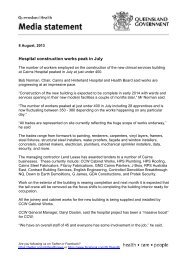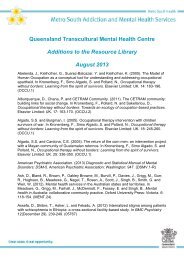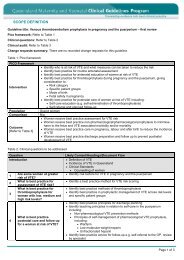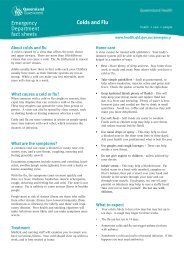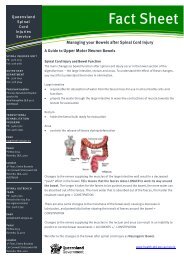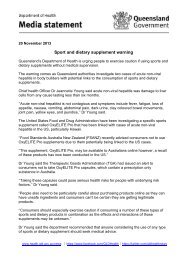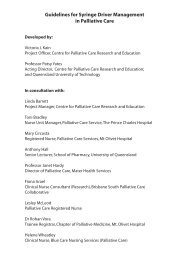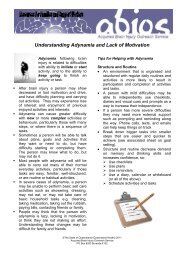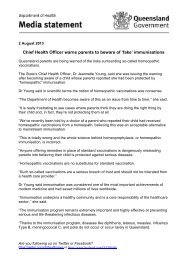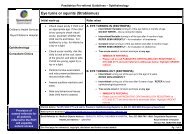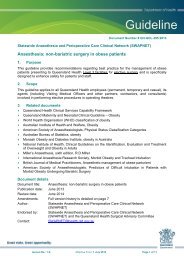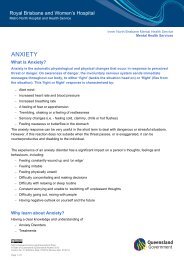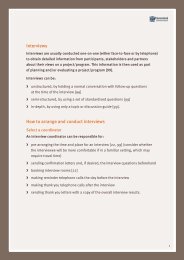Paediatrics - Queensland Health - Queensland Government
Paediatrics - Queensland Health - Queensland Government
Paediatrics - Queensland Health - Queensland Government
You also want an ePaper? Increase the reach of your titles
YUMPU automatically turns print PDFs into web optimized ePapers that Google loves.
Respiratory problems<br />
4. Management<br />
• Consult MO<br />
• If epiglottitis:<br />
-- have the parents / carer stay with child to comfort<br />
-- handle the child as little as possible<br />
-- MO will organise evacuation by skilled MO with paediatric airway management<br />
and IV insertion for IV ceftriaxone [4]<br />
• If croup:<br />
- - symptomatic treatment as per URTI<br />
-- for mild to moderate cases MO may advise:<br />
○ prednisolone 1 mg / kg / dose stat with a second dose for the next<br />
evening or<br />
○ a single dose of oral dexamethasone 0.15 mg / kg / dose<br />
-- for severe cases MO may advise:<br />
○ 0.6 mg / kg / dose (max. 12 mg) IM / IV dexamethasone<br />
○ 5 mL of adrenaline 1:1,000 solution via nebuliser [5]<br />
○ evacuation / hospitalisation<br />
5. Follow up<br />
If child with croup is not evacuated / hospitalised, review next day and consult MO<br />
if not improving<br />
6. Referral / consultation<br />
Consult MO on all presentations of stridor<br />
Bronchiolitis<br />
Recommend<br />
Consult MO immediately if severe<br />
Background<br />
In bronchiolitis, generally the child is distressed without looking sick or toxic<br />
A viral infection of the chest affecting infants 95%. If >95% not maintained consult<br />
MO. See O 2 delivery systems<br />
Primary Clinical Care Manual 2011 Controlled copy V 1.0 567



